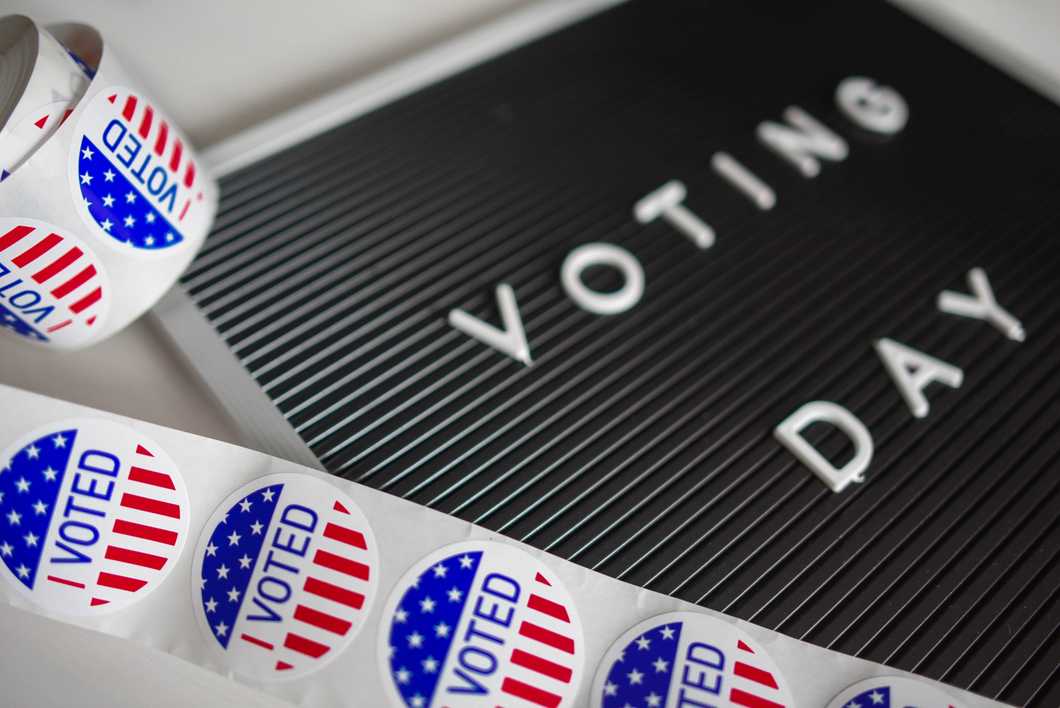The Fox News article "Meghan McCain and Whoopi Goldberg clash over voting rights for Boston bomber: 'He is a terrorist!'" by Sam Dorman discusses a question posed on "The View."; Should felons, or people in prison be allowed to vote? Specifically, should the Boston Bomber, Dzhokhar Tsarnaev, be allowed to vote? The exchange came as a result of the Presidential Town Hall where Bernie Sanders supported the right to vote for convicted felons, terrorists, and sex offenders, even while they are still incarcerated. He states that "Every single person should have the right to vote."
The View co-host, Meghan McCain, a white republican, states on Twitter, "No one who thinks literal terrorists deserve the right to vote has any business leading our country. Full stop." This public statement refers to her lack of support for Sanders' ideas. Another cohost of The View, Whoopie Goldberg, a known Democrat, supports this idea. She states that ""Our Constitution says if you've done your time, you have — we hope — been reformed, you've been changed ... If they let him out, that means they feel his time is up and he gets to become the American citizen again."
Bernie Sanders makes a compelling argument when he says "Yes, even for terrible people, because once you start chipping away and you say, 'That guy committed a terrible crime, not going to let him vote. Well, that person did that. Not going to let that person vote,' you're running down a slippery slope." In his statement, he is defending the right to vote of all people who have committed crimes, regardless of what crime. This is important because the current prison statistics are heavily stacked against people of color, minorities, and people of low socio-economic status. Many incarcerated people committed drug crimes, in states where those drugs are now legal, but they have not been released, nor have their criminal records been expunged. Prison is as much a social justice issue as the right to vote, however, I am choosing to focus on the right to vote.
The questions raised by this article are: Do people who have committed crimes have the right to vote? Do they have the right to vote after they have been released from prison? Do they have the right to vote inside prison?
Ethically, what is the right answer?
This topic is especially interesting in the context of ethics (where we want to do the right thing, but do not know what that is,) because the people we are talking about have, in some way, chosen not to do the right thing, and are convicted criminals. This assumes that every person found guilty by our justice system did actually commit the crime of which they have been accused. It has already been stated that the demographics of incarcerated people do not match the demographics of the population at large, and so there is some social justice issue at work disturbing the equality of those numbers.
From my perspective, the right to vote should be seen as an obligation more than a right, and an act of fulfilling a duty. The ability of a person to fulfill their purpose in a democracy would be dependent on their ability to vote, because voting is the foundation of democracy. Even at that basic level, fulfilling their duty is dependent upon the ability to vote. Some argue that incarcerated people have been removed from society and so democracy, but that is not the case financially, and certainly is not true for the people who are incarcerated and then released. All tax-paying citizens support the prison system, and no incarcerated people have their U.S. citizenship revoked when they are incarcerated. This indicates that we are all part of the same system, and the same democracy, and therefore on that basic level, all have the same duty to vote.
If the inequalities that put certain groups of people into prison more than others cannot be addressed by this debate, then let the equality of vote be addressed. The right to vote should be given all people living within a democratic society, including those who have been convicted of crimes, and who are still serving sentences for their crimes. A number of ethics theories state that some duties are absolute, and although voting is not one of the duties listed in those theories, they can be extended to people living in a society that requires certain activities for that society to function. The defense of the vote for criminals, in turn, defends the rights of the marginalized people that the justice system has systemically failed. Defense of the right to vote defends democracy, which is what our country has sworn to do, domestically and abroad.
I personally feel that the right of a terrorist to vote is offensive, however, I must check my own privilege when I say that. That terrorist may absolutely disgust me, but does that mean that I should support the erosion of the rights of others based on his crimes? I am a college educated, working, white, cis, woman. I have never been convicted of a crime, and I have never been inside a prison. I don't know anyone who has committed a crime for which they have gone to prison. So, I have a lot of ignorance on this subject. However, I do know that the statistics of prison populations are severely skewed against minorities, people of color, and people of low socioeconomic backgrounds. I believe in democracy, and I believe that supporting the right to vote is a function of that democracy. I believe that removing the right to vote from certain people is a way to further discredit, disenfranchise, and make powerless the same people already being systematically injured by the justice system. This injury may prove beneficial to those in politics who choose to take advantage.
For this reason, I believe we must protect the right to vote for all U.S. citizens, regardless of their incarceration status.














